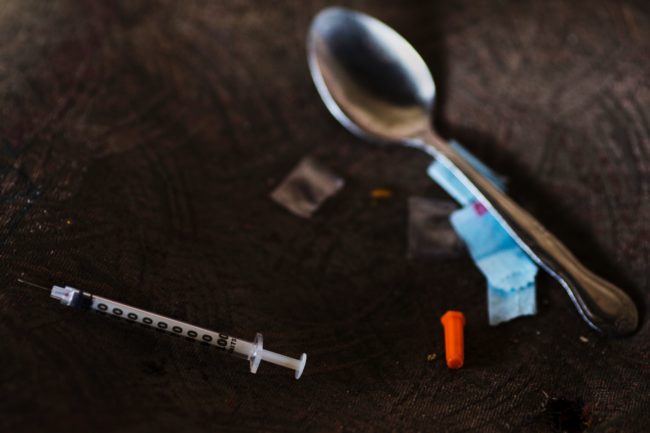School teacher: ‘I became addicted to chemsex to escape’ work pressure

The victim was allegedly refused food or water (Pexels)
A secondary school teacher who became addicted to chemsex has spoken out about the “vicious circle” which engaging in chemsex placed him in.
Will (not his real name), 37, left his job in Liverpool after he started engaging in chemsex, which refers to the use of drugs – generally by bisexual and gay men – to enhance their enjoyment of sexual acts.
He told PinkNews that “at the beginning, [my drug use] wasn’t a problem – I used when I went out and that was it. I realised that using drugs while I was having sex made it a lot better for me.

“It ended up being something I kind of needed all the time.” (Pexels)
“I used to go to saunas quite regularly and was using drugs whenever I went there. I ended up spending an absolute fortune on drugs. That carried on for quite a long time,” he recalled.
“I stopped going to the saunas but by that time I was used to using drugs all the time when I was having sex, so it ended up being something I kind of needed all the time.”
And when Will started teaching, it just got worse.
“There were really stressful times,” he said. “That led to me wanting to escape a bit more.
“I used drugs a lot more – sometimes just on my own, watching porn. Sometimes it would be getting in touch with someone to meet up. If I was meeting someone [for sex] we would always get drugs.
“It became problematic gradually.”
Will said that as time wore on, he acknowledged to himself that his habit was a problem, but said this only made him more stressed – which in turn made him engage more in chemsex.

“I didn’t do anything about it; I didn’t know what to do about it.”
“I didn’t do anything about it; I didn’t know what to do about it.
“I would never have been able to call someone up or go to a meeting [for help], I just never would have had the balls to do that. I would always have put it off or come up with an excuse.
“I was using more but that had the knock-on effect of making me more stressed and wanting to use. It was a vicious circle.”

“I realised that this can’t go on.” (Pexels)
He said that he “ended up leaving a job because I was so unhappy – because of the job but also because I was using.
“I realised that this can’t go on.”
On one of his visits to a local clinic, he met chemsex recovery workers Peter Sheath and Sam Stonehouse, who are part of COAST, a chemsex outreach programme started by mental health, drug and alcohol charity Addaction.
Will now has a new teaching job, is in a happy relationship and hasn’t used for the past five months.

Drugs (DOMINICK REUTER/AFP/Getty)
“When you feel like you need to face up to this, it always feels like the most massive obstacle,” he said.
“You feel like you’re never going to be able to get over it, you’re never going to be able to let go and you’ll never be happy.
“However terrible that feeling is, it doesn’t last as long as you think it will. It’s never as bad once you’re through the other side of it.
“So try to be logical and clinical about it – and always get help from someone, don’t try and do it on your own.
“I tried to do it on my own and failed about three or four times, and as soon as I went and got help… I’m through it; I feel like I’m through it now.”

“I tried to do it on my own and failed about three or four times” (Pexels)
Peter said that “Will feels almost completely stress-free for perhaps the first time in his life.”
A study in 2016 found that “suffering and loneliness” – for instance after a particularly painful break-up – made men much more likely to turn to chemsex.
And another study published last month found that people who participated in chemsex were five times more likely to be newly diagnosed with HIV and nine times more likely to be newly diagnosed with hepatitis C.
The Government has vowed to clamp down on drugs used for chemsex, with former Home Secretary Amber Rudd saying last year that she had “seen first-hand how drugs can destroy lives.
“I am determined to confront the scale of this issue and prevent drug misuse devastating our families and communities.”

